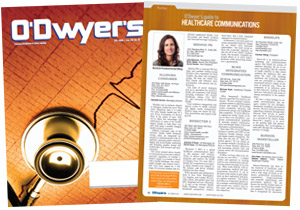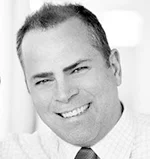|
|
The healthcare world loves to talk about “patient engagement,” and how important it is for professionals to improve the industry. That’s a good thing. There can be no hope of reforming a system if those who use it aren’t onboard with the changes and aren’t actively participating in their own care.
Establishing social media channels and engaging with patients online can help drive patient engagement. But social media can be a double-edged sword. Prudent health care organizations realize this and have established protocols to deal with a potential crisis.
We really don’t need a better crisis case study than how the recent fear of an Ebola epidemic spread far and wide on social media, leading to unfounded rumors taking flight and challenging organizations to be as responsive as they could to what was happening in their hospitals.
|
|
The Centers for Disease Control, for example, set up a Twitter chat to let the public ask and get their questions answered by experts. A medical crisis like the Ebola virus was an opportunity to ensure that patients got accurate information and unwarranted fears were tamped down as quickly as possible — somewhat like putting out small brush fires before they explode.
Whether you’re a physician, the head of a health system or a hospital, you’re currently part of the social media conversation, regardless of whether you have a voice on those channels or not. Patients, local officials, staff and members of the community are talking about you online. As a result, it’s critical to have an established presence on social media so your organization’s voice is represented in the conversation — especially when crisis strikes.
Here are are few tips to help navigate a healthcare crisis online.
Involve social media teams in crisis planning. This is key. All too often, organizational silos prevail and the crisis planning arm of an organization collaborates with the social media team only after a crisis strikes. Without drills to practice responding to potential crises, there is often a lack of clarity about who is doing what when it comes to responding on social media.
Keep in mind that in an emergency, patients, staff and members of the media will turn to your social media channels for updates and information. Make sure your team is at the table and in the loop.
Establish a chain of command. Is a patient in the hospital and live-tweeting a bad experience to thousands of followers? It’s critical that your social media team can contact a member of the patient advocate team to set things right. Is someone making threats on your Facebook wall? You’ll want to notify security of the posts so they can investigate. It’s also good to have a dedicated email address for social media complaints.
Take it “offline.” If someone posts to one of your channels in anger, don’t ask follow-up questions in public. It makes far more sense to tell the user you want to know more specifics, and ask him or her to email you privately. It demonstrates to the individual and others that your organization is being highly responsive, and most users who are after more than simply venting in public, will take advantage of the address to voice their concerns specifically. This can also help make it less likely that any HIPAA rules would be violated.
Know that some issues will start on social media. And you never know what will set it off. It could be something as basic as a patient who had a bad experience or had to wait more than an acceptable amount of time to be seen by a doctor, or an employee union organizing a protest, or a beloved doctor being laid off.
All it takes is one post to damage your organization’s reputation. The “see something, say something” adage certainly applies in this situation, just as it does in the airport. If you are actively “listening” you will be better able to deflect and deflate the issue quickly and effectively.
Monitoring is critical. Obviously, it’s wise to keep an eye on patients posting to your Facebook wall or tagging your Twitter handle. But there are patients who may be talking about you without you being aware of it. There are effective monitoring tools available, such as Nuvi or Topsy, so you can see more of the online conversation and chime in as appropriate. They may be a worthwhile investment for your organization.
Don’t hide. It’s tempting to delete or hide a negative comment on Facebook. Don’t do it. Rather than helping to dampen the criticism, it can do quite the opposite, because now the crisis will be two-fold: not only do others believe your organization did whatever first inspired the negative comments, users believe you have something to hide.
Consumers respect an organization when it replies to negative feedback — no matter how unreasonable — by asking for more details. There are some possible exceptions, however, including racist, homophobic, or otherwise offensive images or posts. Your organization may want to compile some clear community guidelines to which they can later refer if angry users asks why his or her post was deleted.
Plan ahead. Is your facility undergoing renovation or expansion? Will you be reducing your workforce or cutting back on nursing shifts? Are you closing a unit of your hospital? Your patients will notice these issues and want answers.
Be proactive and prepare responses or provide information in advance. This goes back to the first point — make sure that the social team is aware of an upcoming issue. With enough advance notice and planning, they can prepare tweets, Facebook posts and potential responses to the negative comments that may come their way.
Social media is an incredible tool to engage patients in their own healthcare, and professionals working in this industry can use these platforms to share information and improve the health system. But it’s important to remember that social media is just that — social. You will have to answer questions and critics on these channels, and may have to address a crisis or two. The risks of social media are well worth the reward of reinforcing the relationship between the healthcare industry and patients.
* * *
Michal Regunberg is Senior Vice President of Solomon McCown & Company.




 Lo Isidro, senior director at Real Chemistry with more than a decade of strategic communications and PA experience, has joined Narrative Strategies.
Lo Isidro, senior director at Real Chemistry with more than a decade of strategic communications and PA experience, has joined Narrative Strategies. Nelson Fernandez, former North American chair of APCO Worldwide and managing director of Burson-Marsteller, has joined Volunteers in Medicine Berkshires as director of communications and PA.
Nelson Fernandez, former North American chair of APCO Worldwide and managing director of Burson-Marsteller, has joined Volunteers in Medicine Berkshires as director of communications and PA. Lilit Bargar, who was most recently an EVP in the healthcare practice at Weber Shandwick, comes on board at GCI Health as EVP, corporate practice lead.
Lilit Bargar, who was most recently an EVP in the healthcare practice at Weber Shandwick, comes on board at GCI Health as EVP, corporate practice lead.
 Five ways that successful thought leaders are made.
Five ways that successful thought leaders are made.


 Have a comment? Send it to
Have a comment? Send it to 
No comments have been submitted for this story yet.